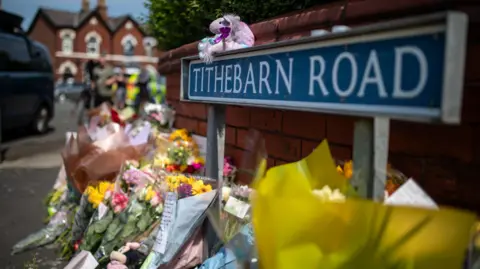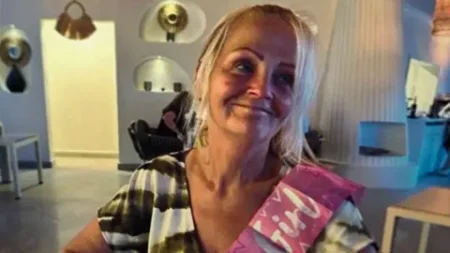In a recent hearing at the Southport Inquiry, held at the Liverpool Town Hall, harrowing testimonies from families of survivors of the knife attacks that occurred on July 29, 2024, raised poignant issues about bravery and vulnerability in the face of violence. One particularly striking testimony came from a mother whose seven-year-old daughter, referred to as C1 to protect her identity, endured the unthinkable—being stabbed 33 times during the attack. Her story not only highlights the profound trauma inflicted on young victims but also emphasizes their courage in trying to protect themselves and their peers amidst chaos.
As the inquiry progressed, it became evident that the attacks perpetrated by 17-year-old Axel Rudakubana left lasting scars, both physical and emotional. The mother of C1 described her daughter’s fight for survival with an unwavering spirit, stating that C1 “fought like hell” to escape from a situation that saw a frightening lack of adult intervention. This truth was particularly painful as it starkly underscored the inadequacy of adult protection in such catastrophic moments. C1’s injuries, described as vast and catastrophic, exemplified the immediate dangers that unfolded during the attack, which occurred at a dance workshop on Hart Street.
The inquiry did not shy away from the chilling details of the incident. CCTV footage presented in court showed C1 attempting to flee before being violently pulled back by Rudakubana, reinforcing the horror of what these young girls faced. This incident not only left C1 critically injured, necessitating her airlifting to Alder Hey Children’s Hospital, but also branded her in public discourse as “the girl who was dragged back in.” Consequently, her family faced an unbearable reality during the days that followed the attack, described by her mother as “a living hell.”
Additionally, C1’s mother’s testimony brought to light the broader narrative surrounding the resilience of the surviving children. During the inquiry, it was revealed that C1 had not only fought for her life but also shielded and rallied other children to flee from the attacker, displaying remarkable bravery. Although teachers in attendance on that fateful day played a role in encouraging the children to escape, C1’s mother poignantly stated the unsettling reality that, once the adults left in those critical moments, it was up to the children to save themselves. It was an unfortunate reality that amplified the necessity of recognizing their strength and bravery in an otherwise terrifying situation.
Alongside C1’s story, the inquiry heard from other families affected by the attack, including the father of C3, another nine-year-old girl who was severely injured. He recounted the moment his daughter endured three stab wounds in the back from an assailant she never saw coming, echoing sentiments that many families shared about the significance of addressing and recognizing the enduring impacts this horror inflicted on their lives.
Ultimately, the Southport Inquiry aims not only to dissect the events surrounding the attack but also to uncover deeper issues related to youth violence. As the inquiry is scheduled to reconvene on September 8, with further phases expected, including discussions around the systemic factors contributing to extreme violence among youth, the voices of the survivors and their families are paramount. Their stories, rife with courage, resilience, and painful truth, form a critical fabric that can help society understand the complex realities of such tragedies and possibly prevent future incidents.
As hearings unfold, it is crucial that accounts like those of C1 and her peers are heard and respected, ensuring that the narrative is not solely defined by the perpetrators but also by the extraordinary experiences of young survivors forced to confront unimaginable circumstances.











